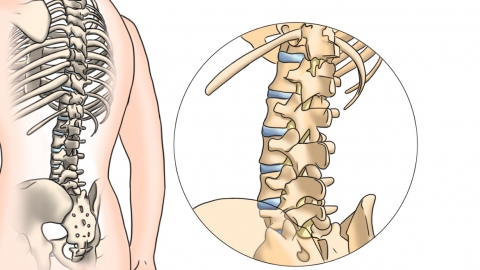Can lumbar disc herniation be cured?
Generally, lumbar disc herniation can be effectively treated. The detailed explanation is as follows:

For most patients with lumbar disc herniation, especially those with mild symptoms and a short disease duration, conservative treatment is the first choice. During acute episodes, strict bed rest helps reduce pressure on the lumbar discs and promotes inflammation resolution. Patients may also take medications such as ibuprofen sustained-release capsules, aspirin enteric-coated tablets, and mecobalamin tablets under a doctor's guidance to relieve pain and promote nerve function recovery. Physical therapies, such as acupuncture, heat application, and massage, can also be used to alleviate muscle spasms and improve blood circulation, thus reducing pain and discomfort.
For patients with severe symptoms, ineffective conservative treatment, or recurrent lumbar disc herniation, surgical treatment may be considered, such as endoscopic discectomy, hemilaminectomy, or total laminectomy.
Self-care is also crucial during and after treatment. Patients should maintain correct posture, avoid prolonged sitting or standing, and refrain from excessive weight-bearing. Strengthening lumbar muscle exercises can enhance spinal stability. Additionally, regular follow-up and reexamination help detect and manage recurrence promptly.




